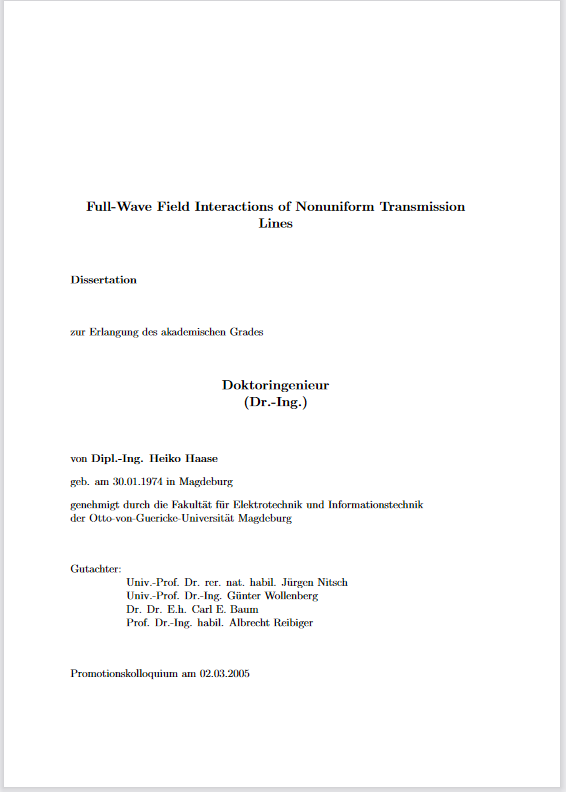Full-wave field interactions of nonuniform transmission lines
DOI:
https://doi.org/10.24352/UB.OVGU-2021-059Schlagworte:
Transmission-line supertheory, generalized transmission-line theory, radiationAbstract
This thesis presents a new method to derive a generalized transmission-line theory, the Transmission-Line Supertheory (TLST). Besides a new kind of telegrapher equations, one also gets equations for the determination of the per-unit-length parameters and the source terms. The theory is directly based on Maxwell’s theory. There are no restrictions (like the exclusive TEM mode) or simplifications, although a transition from the current and charge densities to the conductor currents and charges is performed. The new theory is applicable to nonuniform transmission lines consisting of one or more wire-like conductors. It describes the propagation of electromagnetic waves along those lines as well as the coupling of external electromagnetic fields to the lines. It automatically includes all field modes and thus, covers all physical effects, including radiation losses, that can occur on a nonuniform transmission line. The principal structure of the telegrapher equations, which is known from the classical transmissionline theory, is preserved. The generalized telegrapher equations are still a system of first-order differential equations. The per-unit-length parameters not only depend on the cross-sectional shape of the line but also depend on the whole geometry of the conductors and are determined by the solution of an integral equation. Due to frequency-dependent field modes and radiation losses the parameters become complex valued and frequency dependent, even for a perfectly conducting line. The theoretical derivations are supported by several examples demonstrating the capabilities of the new theory.
Downloads
Veröffentlicht
Ausgabe
Rubrik
Lizenz
Copyright (c) 2005 Res Electricae Magdeburgenses. Magdeburger Forum zur Elektrotechnik

Dieses Werk steht unter der Lizenz Creative Commons Namensnennung - Weitergabe unter gleichen Bedingungen 4.0 International.

